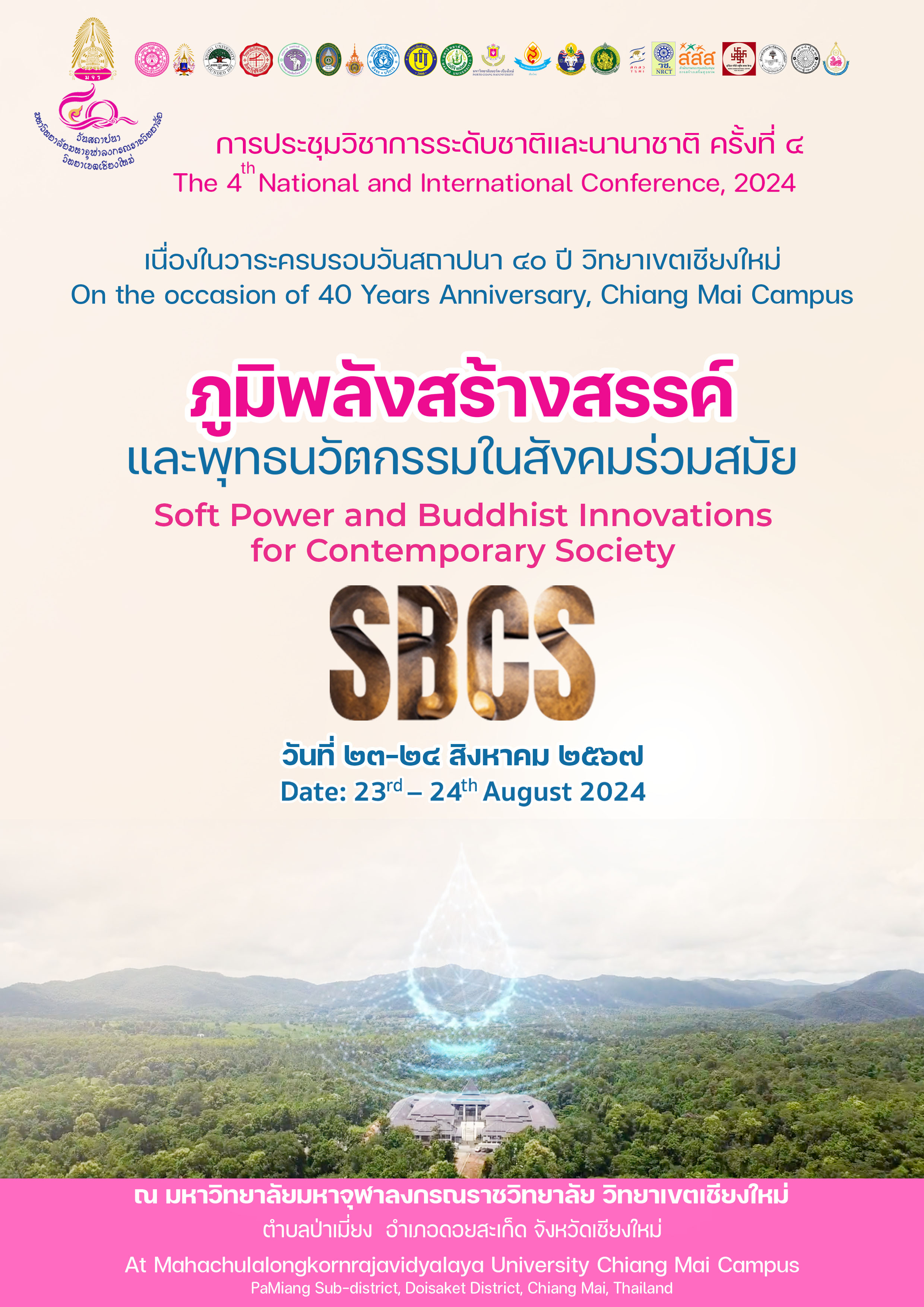การบูรณาการหลักธรรมทางพระพุทธศาสนากับการทำงานของพระสงฆ์ในสังคมไทย
บทคัดย่อ
บทความวิชาการนี้มีวัตถุุประสงค์เพื่อศึกษาการทำงานของพระสงฆ์ผู้มีบทบาทอันสำคัญยิ่งในสังคมในฐานะบทบาทผู้นำทางจิตใจหรือจิตวิญญาณ ผู้ที่คอยแนะแนวทางการดำเนินชีวิตอันดีงาม ผู้บำเพ็ญประโยชน์สงเคราะห์แก่สังคม และเป็นการปฏิบัติไม่ขัดต่อพระธรรมวินัย ซึ่งกำหนดให้พระสงฆ์สร้างสัมพันธภาพที่ดีกับชุมชน สังคม การส่งเสริมช่วยเหลือเกื้อกูลที่เป็นประโยชน์แก่สังคมเรื่อยมา โดยการนำหลักอริยสัจ 4 คือ ทุกข์ สมุทัย นิโรธ มรรค ให้เข้าใจความเป็นจริงของสังคมที่ได้เปลี่ยนแปลงไปตามยุคสมัยและความเจริญก้าวหน้าทางเทคโนโลยี ส่งผลต่อวิถีชีวิตและค่านิยมของสังคมไทยก็เริ่มเบี่ยงเบนไป สาเหตุเหล่านี้เป็นแรงจูงใจให้พระสงฆ์ศึกษาหาความรู้ในวิชาการสมัยใหม่ เพื่อช่วยให้สามารถปรับตัวให้เข้ากับบริบททางสังคมที่ก้าวหน้าได้ และได้มีการส่งเสริมกิจกรรมต่าง ๆ บูรณาการหลักธรรมะในการพัฒนา 4 ด้าน คือ กายภาวนา สีลภาวนา จิตตภาวนา และปัญญาภาวนา ให้สอดคล้องกับนโยบายของภาครัฐในการพัฒนาคุณภาพชีวิตให้ดีขึ้นต่อไป
บรรณานุกรม
ศูนย์บริหารข้อมูลตลาดแรงงานภาคเหนือ. (2564). การทำงานของแรงงานต่างด้าว. วารสารสถานการณ์ตลาดแรงงานภาคเหนือ. 1(2), 14.
ธมลวรรณ ธีระบัญชร. (2566). การจัดการเรียนรู้ด้วยเทคนิคการสอนร่วมสมัย. วารสารสังคมศาสตร์ มหาวิทยาลัยมหามกุฎราชวิทยาลัย. 6(1), 187 – 186.
สวงษ์ ไชยยา, สมาน ฟูแสง, สมเกตุ อุทธโยธา, และ สำเนา หมื่นแจ่ม. (2560). การพัฒนารูปแบบการจัดการศึกษาเชิงบูรณาการที่สอดคล้องกับวิถีชุมชนไทใหญ่ในจังหวัดเชียงใหม่. วารสารบัณฑิตวิจัย. 8(2), 37-50.
ฐานเศรษฐกิจ. (2567). สวนดุสิตโพลเปิดผลสำรวจ “จุดเด่น-จุดด้อย” ของครูไทยปี 2566. สืบค้น 19 กรกฎาคม 2567. จาก https://www.thansettakij.com/news/585855
สำนักงานสภาความมั่นคงแห่งชาติ. (2566) แผนปฏิบัติการด้านการส่งเสริมการอยู่ร่วมกันภายใต้สังคมพหุวัฒนธรรมในประเทศไทย (พ.ศ. 2566 – 2570). สืบค้น 25 กรกฎาคม 2567. จาก https://www.onlb.go.th/about/featured-articles/5139-a5139

